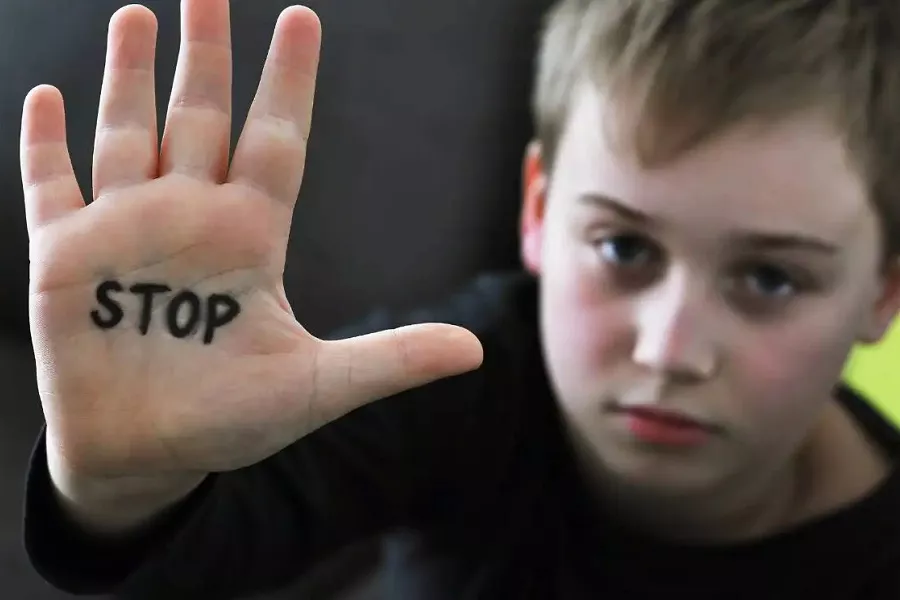From a superficial understanding, a single-parent family refers to a family consisting of only one spouse and minor children after death or divorce. To this end, the concept of children in a single-parent family can be defined as a family formed by one of the father or mother and his unmarried children under the age of 18 who do not have the ability to live independently. Home is a post station, a harbor, and a fertile ground for children to grow into talents. For underage children, it is synonymous with safety, the source of happiness, and the development of healthy psychological personality. Children in single-parent families are prone to a series of psychological problems.
- The breakdown of an autistic family seems to be a “catastrophic disaster”. For young children, they lack the necessary psychological preparation, so they are hit harder than their parents, and children are more sensitive and vulnerable than adults. They do not yet have the ability to self-adjust their psychology, and it is difficult for them to face the harsh reality of family damage, so they will feel at a loss and feel unhappy. Children also know how to compare, they will compare their present with the past, feel that their situation is not as good as before, compare themselves with children from healthy families, and feel that they do not add to other people’s children, so they breed inferiority complex and make changes. She is timid, lacks self-confidence, lacks enterprising and positive spirit, and because she feels inferior to other children. These children are depressed because they are alienated by their parents, do not want to be in contact with people, and are often alert and bored to the people around them, showing symptoms of nervousness. They always suspect that others will talk about the defects of their family and the divorce of their parents behind their backs. They think that others look down on them and are unwilling to open their hearts to others, so they close themselves, do not want to go out, do not want to deal with people, and show loneliness , Introverted personality traits.
- Inferiority Due to living in a complete family all the time, in the face of the sudden breakdown of the family, the child cannot accept the reality in front of him, and cannot adapt to the fatherless or motherless environment. The child’s psychology is not mature, he can’t experience the life of his parents, he can’t understand the difficulties of the parents, the young mind is fragile, sensitive, and has no ability to adjust himself. Especially when they see their companions and their parents lovingly and happily playing and frolicking, children are most likely to think about their past lives. But now is not what it used to be. The sadness and loss in their hearts make them feel depressed and inferior. Children can’t find their own happiness, they can’t see their happiness there, so they refuse to be happy and immerse themselves in worry and sadness. . At the same time, children are the most sensitive at this time. Facing the care of their peers and society, they will be overly concerned and even misunderstood. In the long run, they will be separated from the crowd and enter a space of self-enclosure and loneliness, which will lead to personality exchanges. A great obstacle, if this goes on like this, they will develop mental illness.
- Self-blame is manifested as a low evaluation of personal ability and quality, thereby self-blame, self-disdain, and self-contempt, attributing all unsatisfactory to one’s own badness, and having a tendency to fear what one does . Children of single-parent families have a stronger sense of inferiority, they feel inferior to others, pessimistic and disappointed. Due to their low evaluation of themselves, they attribute the failure of work and study to their own incompetence, resulting in negative emotional experiences such as anxiety, guilt, and disappointment, which lead to an imbalance in their entire psychology. Over time, they lose confidence in themselves, and even those tasks that can be accomplished with a little effort are often easily given up because they feel incompetent. After being criticized, many children from single-parent families always think that they are not good. When others laugh at them, they always think that they have done something wrong.
- Anxiety to people Anxiety is an indicator of the degree of premonition of difficulty and failure when in contact with others. Children of single-parent families see people attack each other in the process of their parents’ divorce, and learn to bargain and hostile to each other. Therefore, they lack confidence in interpersonal interactions, and their guardians Emotional disorders caused by lack of family can easily bring this emotion into the interaction with children. Children live in fear and spend a lot of time dealing with the family relationship after the family is broken, and the interaction between people. Feeling anxious and insecure. Therefore, they feel uneasy and sensitive in front of everyone, and they are always afraid that others will say bad things about them when making friends, and they are always unhappy when they are told, and they have the characteristics of withdrawal and anxiety in their relationships with others.
- Depression will inevitably lead to family turmoil or cold war due to the separation of parents. Children live in a depressing space for a long time, worrying about the relationship between their parents from time to time, and even children of some families have become a punching bag for their parents to vent their anger. In the fear and worry, there is no sense of security, and the constant worry and fear of the outbreak of family war will make oneself utterly broken. Such long-term torture can easily make children feel fearful and hostile, keep a distance from their peers, have a strong sense of self-protection, and have a lot of hostility. Children in single-parent families often feel depressed, depressed, irritable, and have nowhere to solve their psychological troubles. . Because it is suppressed for too long, once it erupts, the energy will be greater, and it is easy to produce extreme behaviors. This tendency manifests in girls as wanting to cry or run away from home, and in some boys as aggression.
- Envy children of single-parent families, whether in material or spiritual, the enjoyment they can get is generally not as good as children in healthy families, and these are exactly what every child desires. Because children from healthy families can get what they can get, children from single-parent families are not easy to get, and their psychology easily evolves from initial envy to jealousy and hatred. Psychologically, they will show a special attachment to one parent, hoping to get double the return from one parent. In terms of material enjoyment, if they cannot treat this gap correctly, they think that what others can get, they should also be able to have it. This can easily lead to crimes such as theft.
- Rebellion Because children in single-parent families do not have a high status in the “children’s circle”, they are easy to be ridiculed and bullied by other children. However, they also long for Che Yan and to be appreciated by others, so they deliberately show their difference in words and deeds, and sometimes even like to “top the bull’s horns and fight against each other” to show their own existence value.



























